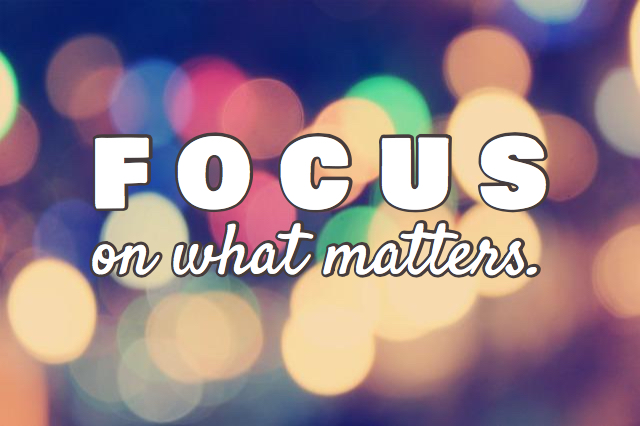

Pause, Breathe, Respond: A New Way to Handle Emotions
We’ve all been there—those moments when something seemingly small hits a nerve and sends us spiraling. It could be a sharp comment, an unexpected inconvenience, or someone’s behavior catching us off guard. And before we know it, there’s a wave of anger, hurt, frustration, or defensiveness bubbling up inside.
That initial wave is called an emotional response—a raw, internal reaction to a stimulus. It's not good or bad on its own; it's simply your body and brain signaling that something matters to you. But when we don't take control of those feelings, they tend to take control of us. The problem isn’t the emotion itself—it’s what we do with it.
Unmanaged emotions can swiftly escalate into impulsive reactions: snapping at someone, slamming a door, storming out of a room, or going silent in passive-aggressive retreat. And when that becomes your default mode of communication, relationships suffer, and so does your sense of personal peace.
If you're someone who finds yourself frequently overwhelmed by emotional surges or triggered easily, you’re not alone—and you’re not powerless. With the right tools, you can shift from reacting in the heat of the moment to responding with purpose and clarity.

1. Create Space With Moment-to-Moment Awareness
"Between stimulus and response there is a space. In that space is our power to choose our response. In our response lies our growth and our freedom." – Viktor E. Frankl
Mindfulness doesn’t require candles, chants, or sitting cross-legged for hours. At its core, mindfulness is about catching yourself in the moment—learning to observe what's happening inside you before your emotions take the driver’s seat.
This means tuning into the body cues: tight jaw, racing heart, clenched fists, that familiar rise in your chest. When you can pause and name what's happening in your body and mind before reacting, you’ve already taken the first step toward emotional mastery. Even a two-second pause between the trigger and your response can redirect what happens next.
That pause—that breath—is where transformation begins.

2. Pinpoint and Name What You're Feeling
A strategy widely supported in both neuroscience and psychotherapy is summed up in the phrase: "Name it to tame it."
When you put words to your emotional experience—“I feel humiliated,” “I feel dismissed,” “I feel anxious”—you activate the parts of your brain that help regulate emotional impulses. Labeling your feelings does more than provide clarity; it begins to disarm their control over you.
One surprising truth? Most people walk around with a severely limited emotional vocabulary. We say "I'm angry" when we actually feel betrayed. Or "I'm sad" when it’s really disappointment mixed with loneliness. Expanding your emotional dictionary helps you understand your inner world with greater precision.
Over time, this skill builds resilience. The more accurately you can name what’s stirring inside you, the better you’ll be at calming the storm—and making choices that match your deeper intentions.

3. Redirect Your Focus to Core Values
When emotions flare, it often feels like your entire brain has been hijacked. That’s because it kind of has—by your amygdala, the survival-oriented part of your brain that reacts to perceived threats. But the tricky thing is, what your brain flags as a threat often isn’t dangerous at all—it’s just triggering a past emotional wound.
In the middle of an emotional spike, one of the best things you can do is to shift focus from what's upsetting you to what truly matters to you right now. Ask yourself:
-
What kind of person do I want to be in this moment?
-
What value do I want to honor—respect, compassion, assertiveness, patience?
This technique anchors you in your higher self. It reminds you that even if the situation feels personal or unfair, you have the power to act in a way that reflects your principles—not your pain.
You're not trying to suppress your emotion, but to give it context—to put it in its place rather than let it run the show.

4. Count to Ten—It Still Works (Here’s Why)
Yes, it's old advice. But it has survived this long for a reason: it works.
When your emotions surge and you feel yourself teetering on the edge of a reaction, counting to ten offers an immediate way to calm your nervous system. It’s not just a stalling tactic; it’s a biological interrupter.
By engaging the rational part of your brain through linear counting, you momentarily shift activity away from the emotional centers like the amygdala and back toward the prefrontal cortex, where reasoning and impulse control live. Even if it doesn’t fully neutralize your emotion, it gives you just enough space to reconsider your next move.
Try this: Inhale for a count of four. Exhale for a count of six. Then slowly count from one to ten. It’s surprisingly powerful, especially when practiced consistently.

5. Choose Your Response With Intent
Becoming less reactive doesn't mean tolerating mistreatment or avoiding difficult conversations. It means approaching those moments deliberately, instead of allowing emotion to dictate your words and actions.
When someone crosses a line or says something that wounds you, it’s tempting to lash out—to fire back, to guilt-trip, to get the last word. That might feel satisfying in the moment, but it rarely leads to connection, understanding, or resolution.
Instead, try saying something like:
-
“When you said that, I felt dismissed. Can we talk about it?”
-
“I’m feeling overwhelmed right now. Can we pause and revisit this in a few minutes?”
These kinds of responses don’t make you weak—they make you wise. They protect your dignity while also opening the door to more respectful dialogue.
In the end, reactivity is automatic. But response is a choice—one that builds trust, maturity, and emotional strength with every use.



